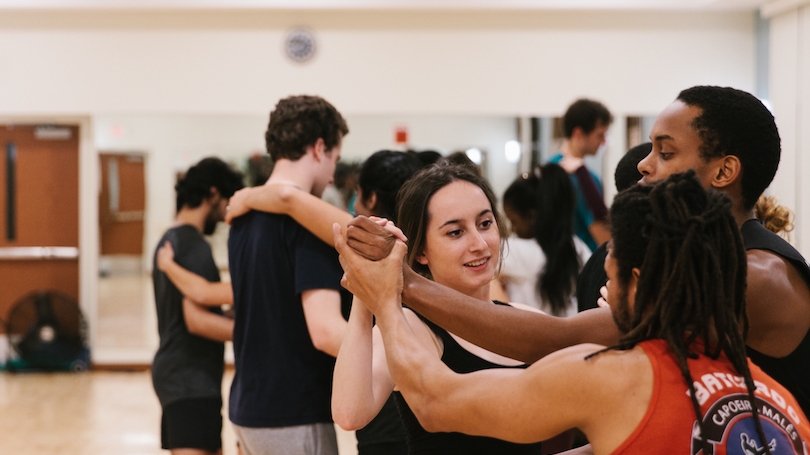
Menu
- Public Policy
- Leadership
- Funding
- News & Events
- About the Center
Back to Top Nav
Back to Top Nav
Back to Top Nav
Back to Top Nav
During week six, the 17W Rockefeller Global Leadership Program cohort attempted Capoeira, a Brazilian martial art form that combines elements of dance, acrobatics and music.
To say the very least, Capoeira is a workout. A workout that requires a unique combination of grace, control, and power. As the instructor, Fabio “Fua” Nascimento, led us through a number of activities, he explained both the physical activity, and the cultural history and significance behind it.
We dodged and ducked each other’s limbs to the rhythm, got lower to the ground without falling than I had thought was possible, and attempted what looked like a rotating handstand.
With respect to the true art form, Capoeira, I can say with some degree of confidence that it will never be an area in which I truly excel. What our cohort ultimately encountered was physical challenge and discomfort in the attempt to perform a cultural and ritualistic art form. This type of physical discomfort in the face of cultural confrontation, unlike any such emotional and mental discomfort, cannot be denied.
There was not one among us who felt that they had mastered Capoeira by the end of those two hours on Monday night. Without a doubt, there came a point at which we all felt uneasy or inept, as evinced by giggles and looks around the room of incredulity. What those reactions ultimately indicated is the fact that we were pushed beyond our cultural ‘comfort zones’, if you will, in a way that was truly undeniable.
From my perspective, the completely immersive, experiential aspect is what made such a physically demanding learning experience so uniquely valuable. Denial of discomfort due to cultural difference can be surprisingly easy to suppress or recognize even in the most self-aware of human beings. There can be no such denial for the beginner Capoeira practitioner.
Written by Hannah Gallen ’19, 17W Rockefeller Global Leadership Program Participant